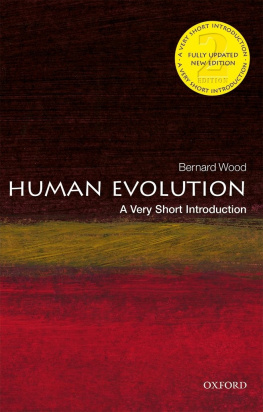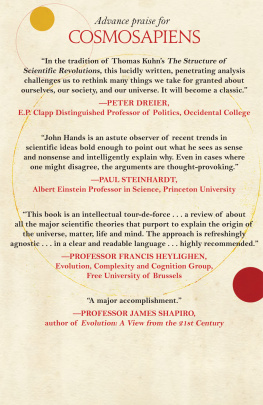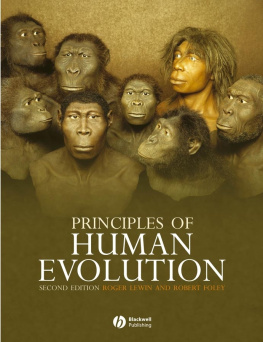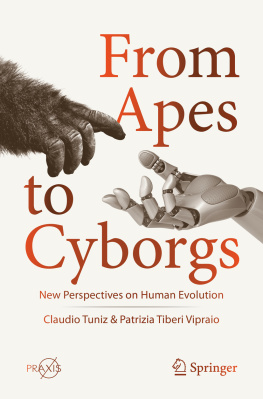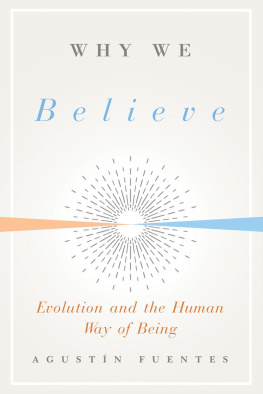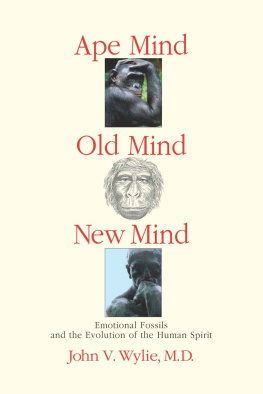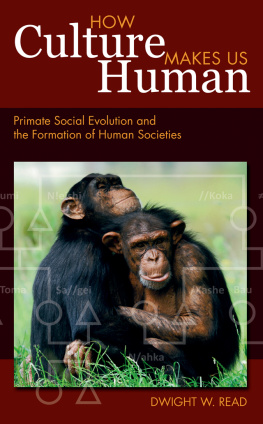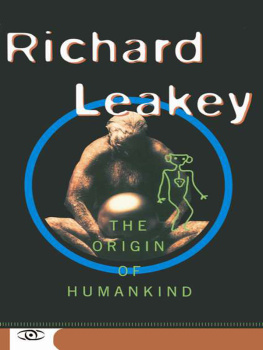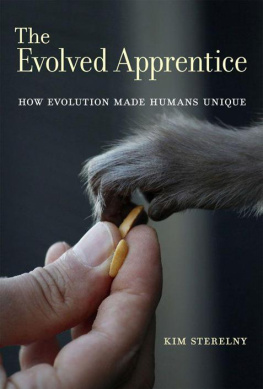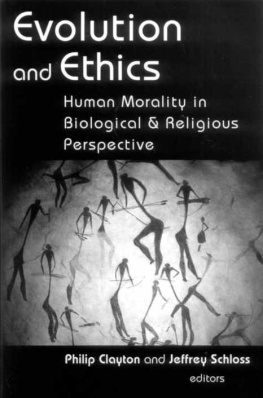PREFACE
This book is not about paleoanthropology. It does not analyze the supraorbital torus of Homo erectus, or the feet of Australopithecus sediba. This book is about how to make sense of information like that; its about thinking. Further, it is premised on an uncontroversial point. Humans are universally interested in who they are and where they come from. Sharks, elephants, bats, chimpanzees, and other species are not. Or if they are, it is only in ways that are inaccessible and unfathomable to us, and always will be.
This fact immediately establishes the case for human exceptionalism. We are different from other species in that we do attempt to situate ourselves in a social and historical universe, and thereby make sense of our existence. We are sense-making creaturesthat is one of the functions of our most prominent organ, the brainand we create that sense in many different ways, culturally. The study of how people make sense of who they are and where they came from is kinship, the oldest research program in anthropology, which is predicated on the oldest systematic observation in anthropology, that different cultures
Our own ancestry is important to us, and the authoritative voices about it are of course those of science. Science itself is cultural, a fact-producing mode of thought, but when it produces facts about our ancestry, those facts are heavily value laden, and thus are often different from other classes of scientific facts. Understanding how those human facts differ from, say, cockroach facts, is the first step toward reading the literature on human evolution critically. And the simplest answer is, Little is on the line, and few people care about cockroach facts. (Of course urban apartment dwellers and the manufacturers of insecticides may sometimes care strongly about cockroach facts; but those cares are quite specific and localized.) In addition to being facts of nature, human facts are political and ideological; history shows that clearly. It doesnt mean that human scientific facts are unreal and untruejust that one needs to scrutinize them differently, because there are more variables to consider.
This is not about theories of evolutionary progress or biological teleology, which see evolution as culminating with our species, and which have been a traditionally popular way to reconcile scientific and theological ideas about human origins. These teleological theories have often been accompanied by a view of nature as a linear hierarchy, a Great Chain of Beingwhich sounds more erudite in Latin ( scala naturae ) and sexier in French ( chelle des tres ). Personally I dont think we sit atop anything but the food chain, but I dont see how the point can be established without standing outside of the system itself, which is manifestly impossible. One such proof that I recently read explained But the validity of this argument against human superiority involves invoking a rhetorical universe of superintelligent giraffes who apparently require neither big brains to produce scientific thoughts, nor hands to write them down. In other words, the argument dethroning humans ends up establishing exactly the opposite pointbecause you have to invent human giraffes in order to dethrone human humans.
Our grasp of who we are and where we came from begins with an appreciation that we are the products of naturalistic evolutionary processes, but we are also not separate from the things we are trying to understand; consequently our project is scientifically reflexive. That is the central point of this book: Our ancestors were apes and we are different from them, and we want to know how that happened. We are bio-cultural ex-apes trying to understand ourselves.
This book, then, is about two reciprocal themes: how to think about anthropology scientifically, and how to think about the science of human origins anthropologically. This will be a presentation of human origins, then, which begins with recent work in science studies, to articulate an evolutionary anthropology that is consistent both with modern biology and with modern anthropology, and is more scientifically normative than evolutionary psychology or creationism. My thesis is that what differentiates biological anthropology (the study of human origins and diversity) from biology (the study of life) is reflexivity, the breakdown of the distinction between subject and object that characterizes modern science. One simply cannot have the same relationship to boron or to the planet Jupiter that one has to the ancestors or neighbors. Our scientific narratives of human origin and diversity are just thatnarratives, with properties endowed by the epistemic virtues of science, notably, naturalism, rationalism, and empiricism. Nevertheless, since they are narratives specifically about who we are and where we came from, they are simultaneously narratives of kinship and ancestry, which are universally culturally important.
I explored the genetic meanings of evolutionary relatedness and ancestry in What It Means to Be 98% Chimpanzee (University of California Press, 2002). My next project involved engaging more broadly with science studies. Given C.P. Snows famous assertion that science could be understood as an anthropologist understands culture, it stands to reason that our understanding of science could be improved by the introduction of anthropological theory and analyses. Recent trends in the history and sociology of science have involved integrating anthropological knowledge and methods to the extent that the field of science studies, while intellectually diverse, generally has a recognizable anthropological element. I attempted to explore the nature of science, calling specific attention to the scientific ambiguities of biological anthropology, in Why I Am Not a Scientist (University of California Press, 2011). The present book focuses specifically on the study of our origins, and situates it as a cultural and scientific narrative, with attendant implications for understanding the nature of the facts it produces.








